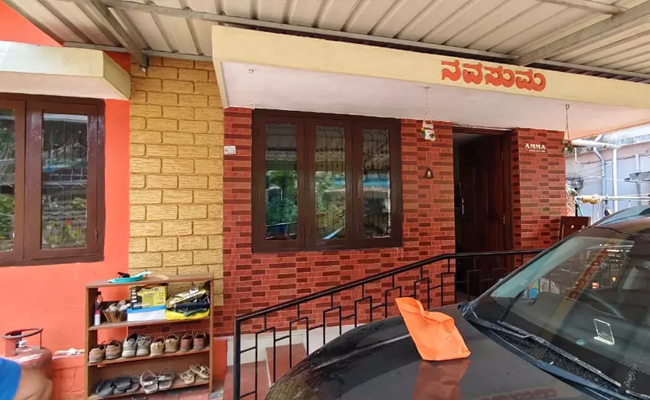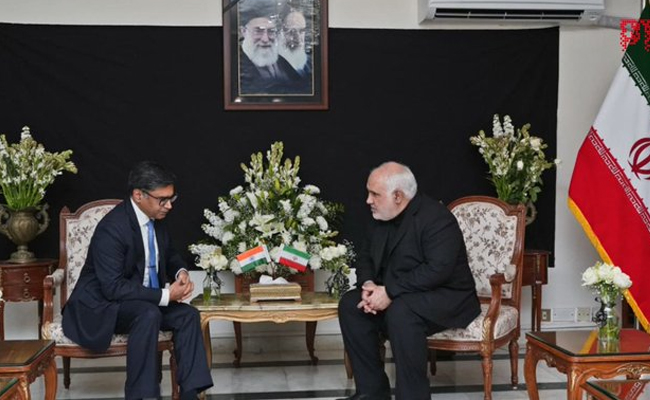Beijing: The Chinese government is taking draconian measures to slash birth rates among Uighurs and other minorities as part of a sweeping campaign to curb its Muslim population, even as it encourages some of the country's Han majority to have more children.
While individual women have spoken out before about forced birth control, the practice is far more widespread and systematic than previously known, according to an AP investigation based on government statistics, state documents and interviews with 30 ex-detainees, family members and a former detention camp instructor.
The campaign over the past four years in the far west region of Xinjiang is leading to what some experts are calling a form of demographic genocide."
The state regularly subjects minority women to pregnancy checks, and forces intrauterine devices, sterilization and even abortion on hundreds of thousands, the interviews and data show. Even while the use of IUDs and sterilisation has fallen nationwide, it is rising sharply in Xinjiang.
The population control measures are backed by mass detention both as a threat and as a punishment for failure to comply. Having too many children is a major reason people are sent to detention camps, the AP found, with the parents of three or more ripped away from their families unless they can pay huge fines. Police raid homes, terrifying parents as they search for hidden children.
After Gulnar Omirzakh, a Chinese-born Kazakh, had her third child, the government ordered her to get an IUD inserted. Two years later, in January 2018, four officials in military camouflage came knocking at her door anyway.
They gave Omirzakh, the penniless wife of a detained vegetable trader, three days to pay a USD 2,685 fine for having more than two children.
If she didn't, they warned, she would join her husband and a million other ethnic minorities locked up in internment camps often for having too many children.
God bequeaths children on you. To prevent people from having children is wrong, said Omirzakh, who tears up even now thinking back to that day. They want to destroy us as a people.
The result of the birth control campaign is a climate of terror around having children, as seen in interview after interview. Birth rates in the mostly Uighur regions of Hotan and Kashgar plunged by more than 60% from 2015 to 2018, the latest year available in government statistics.
Across the Xinjiang region, birth rates continue to plummet, falling nearly 24% last year alone compared to just 4.2 per cent nationwide, statistics show.
The hundreds of millions of dollars the government pours into birth control has transformed Xinjiang from one of China's fastest-growing regions to among its slowest in just a few years, according to new research obtained by The Associated Press in advance of publication by China scholar Adrian Zenz.
This kind of drop is unprecedented....there's a ruthlessness to it, said Zenz, a leading expert in the policing of China's minority regions. This is part of a wider control campaign to subjugate the Uighurs.
US Secretary of State Michael Pompeo denounced the policies in a statement Monday.
We call on the Chinese Communist Party to immediately end these horrific practices," he said.
China's foreign minister derided the story as fabricated and fake news, saying the government treats all ethnicities equally and protects the legal rights of minorities.
Everyone, regardless of whether they're an ethnic minority or Han Chinese, must follow and act in accordance with the law," ministry spokesman Zhao Lijian said Monday when asked about the AP story.
Chinese officials have said in the past that the new measures are merely meant to be fair, allowing both Han Chinese and ethnic minorities the same number of children.
For decades, China had one of the most extensive systems of minority entitlements in the world, with Uighurs and others getting more points on college entrance exams, hiring quotas for government posts and laxer birth control restrictions.
Under China's now-abandoned 'one child' policy, the authorities had long encouraged, often forced, contraceptives, sterilisation and abortion on Han Chinese. But minorities were allowed two children three if they came from the countryside.
Under President Xi Jinping, China's most authoritarian leader in decades, those benefits are now being rolled back.
In 2014, soon after Xi visited Xinjiang, the region's top official said it was time to implement equal family planning policies for all ethnicities and reduce and stabilize birth rates. In the following years, the government declared that instead of just one child, Han Chinese could now have two, and three in Xinjiang's rural areas, just like minorities.
But while equal on paper, in practice Han Chinese are largely spared the abortions, sterilizations, IUD insertions and detentions for having too many children that are forced on Xinjiang's other ethnicities, interviews and data show. Some rural Muslims, like Omirzakh, are punished even for having the three children allowed by the law.
Let the Truth be known. If you read VB and like VB, please be a VB Supporter and Help us deliver the Truth to one and all.
Mangaluru: Thieves broke into the rented house of a forest officer in the Kotekar sub-division of Ullal and stole a motorbike, ₹10.5 lakh in cash and gold and silver jewellery weighing about 181 grams, police said. The incident came to light on Thursday morning after Mehboob returned home from his native after nearly one week
The victim, Mehboob Saab Gudihola, had been living in the house with his wife and child for the past six months. According to the complaint, the family had travelled to their native place in Koppal on Friday.
The theft came to light when Gudihola returned home on Thursday morning and found that the house had been broken into.
In his complaint to police, Gudihola said the accused had entered the house through the main door and broke open cupboards in two rooms. The thieves allegedly stole gold and silver jewellery weighing around 181 grams, including ornaments belonging to the child.
They also took away ₹10.5 lakh in cash, which Gudihola told police he had brought home after availing a bank loan. In addition, a motorbike parked on the premises was also stolen.
Following the complaint, Ullal Police registered a case and launched an investigation. A dog squad and forensic experts visited the house and conducted an inspection.





